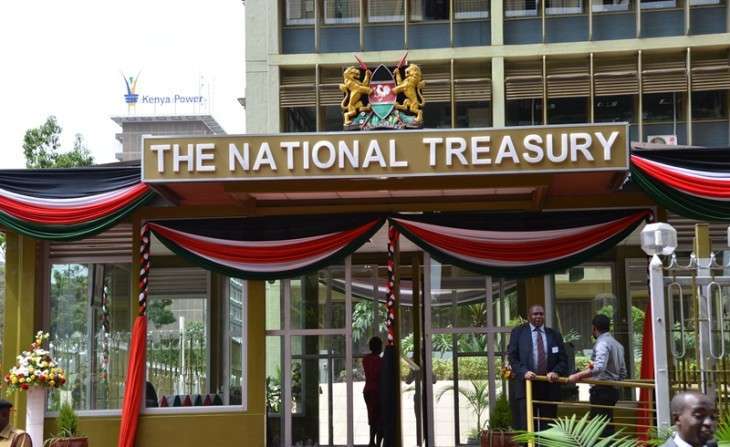Mbadi Announces Plans to Increase Funding for SHA, Addresses Lecturers’ Strike
Share
National Treasury Cabinet Secretary (CS) John Mbadi has dismissed claims that Kenya is borrowing to repay existing debt, insisting that recent Eurobond plans are part of a broader strategy to manage the country’s maturing obligations and ease economic strain.
Speaking during a press briefing, Mbadi said the government’s move to issue another Eurobond was a proactive effort to “smoothen the debt curve” and avoid potential fiscal pressure as multiple commercial debts near maturity.
“We have been struggling as a country with the maturity of debts. We have so many commercial debts falling due at the same time,” Mbadi explained.
“We decided to raise another Eurobond that will smoothen the curve and deal with the 900-million-dollar bond that’s due in 2027, which would have put a strain on our economy.” He added.
He emphasized that the government is not accumulating additional debt but restructuring repayments to enhance economic stability.
“We’re not taking on more debt; we are smoothing the debt. We do not have the economic capacity and luxury to pay off the debts hence we’re managing them,” the Treasury boss clarified.
Increased Funding for SHA
Mbadi also announced plans to enhance financial support for the Social Health Authority (SHA), affirming that the state agency operates independently from the Treasury.
He noted that the government has resolved to clear smaller debts owed to healthcare facilities to ensure the seamless rollout of the Universal Health Coverage (UHC) initiative.
“SHA is a state agency and has its own funding,” Mbadi said. “It has been agreed that any facility owed below Ksh 10 million should be paid. SHA is an independent fund, so the payment does not necessarily come from the Treasury.”
The move is expected to improve health service delivery under the new healthcare financing framework that replaced the National Health Insurance Fund (NHIF).
Lecturers’ Strike ‘Not Treasury’s Fault’
Addressing the ongoing lecturers’ strike, Mbadi distanced the Treasury from the dispute, pointing fingers at the Ministry of Education and the Salaries and Remuneration Commission (SRC) for delays and miscommunication.
“The problem with the lecturers’ strike is the lack of understanding with the ministry and SRC. The problem is not the Treasury,” he asserted.
“We gave a Ksh 4.3 billion allocation and released the money in full when the year began.”
The CS questioned why lecturers were raising grievances now, years after the funds were allocated for pending payments.
“If money was to be paid in 2021, I do not understand why they waited until 2025 to raise those concerns,” he added.
He further disclosed that the Treasury had already authorized ministries, departments, and agencies (MDAs) to advertise and implement development expenditure programs, including road projects, saying there was “no cash crunch.”
Govt to Review Capitation Funding
On education capitation, Mbadi admitted that the current allocations have been insufficient for several years but assured that the government is working to correct this.
“We have been releasing capitation in full as budgeted — 50, 30, and 20 per cent — but the problem has been underfunding,” he said.
“The president has instructed us to calculate the actual amount needed to ensure capitation is fully funded.”
He explained that the review aims to end complaints from school heads who claim that the funds released by the government are still inadequate despite full disbursement of the budgeted amounts.
Mbadi reaffirmed that the government remains committed to stabilizing the economy, supporting key sectors, and maintaining fiscal discipline while ensuring that critical services such as education and health remain adequately financed.

The National Treasury building in Nairobi CBD. PHOTO/CBD.
You Might also Like




